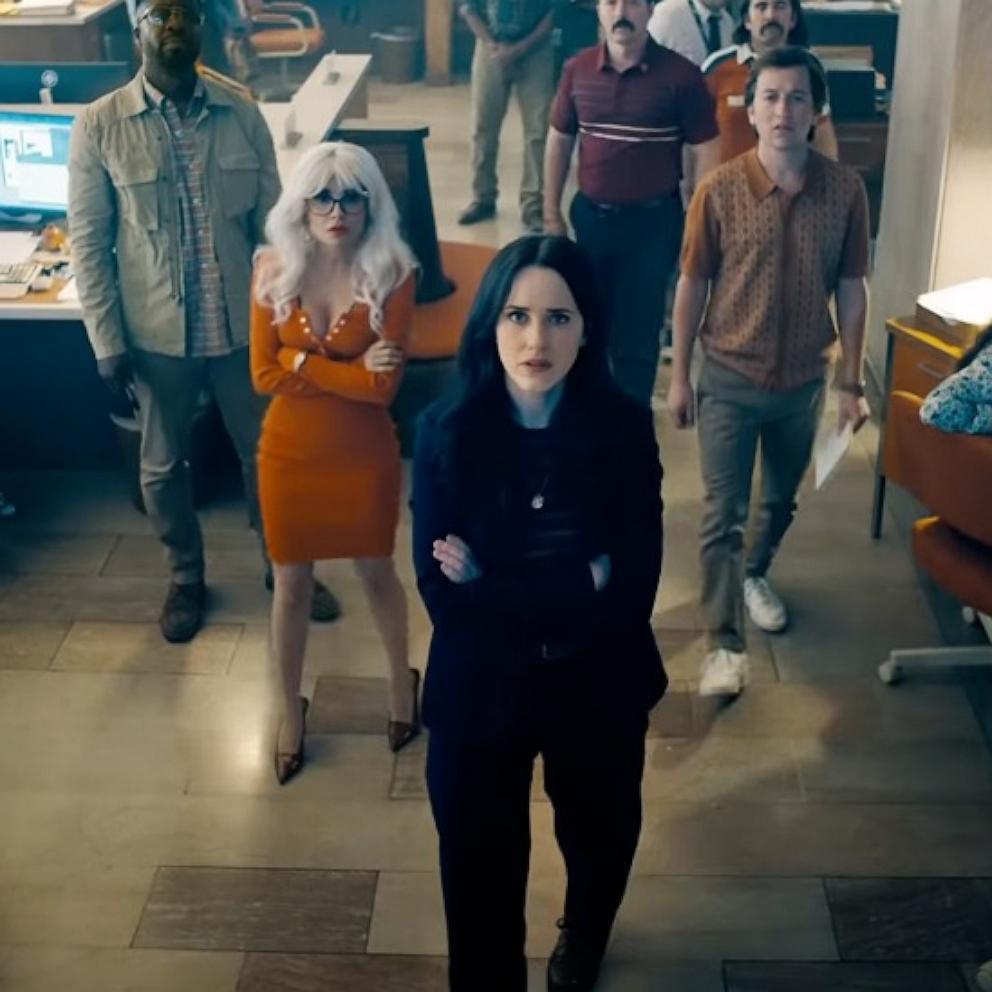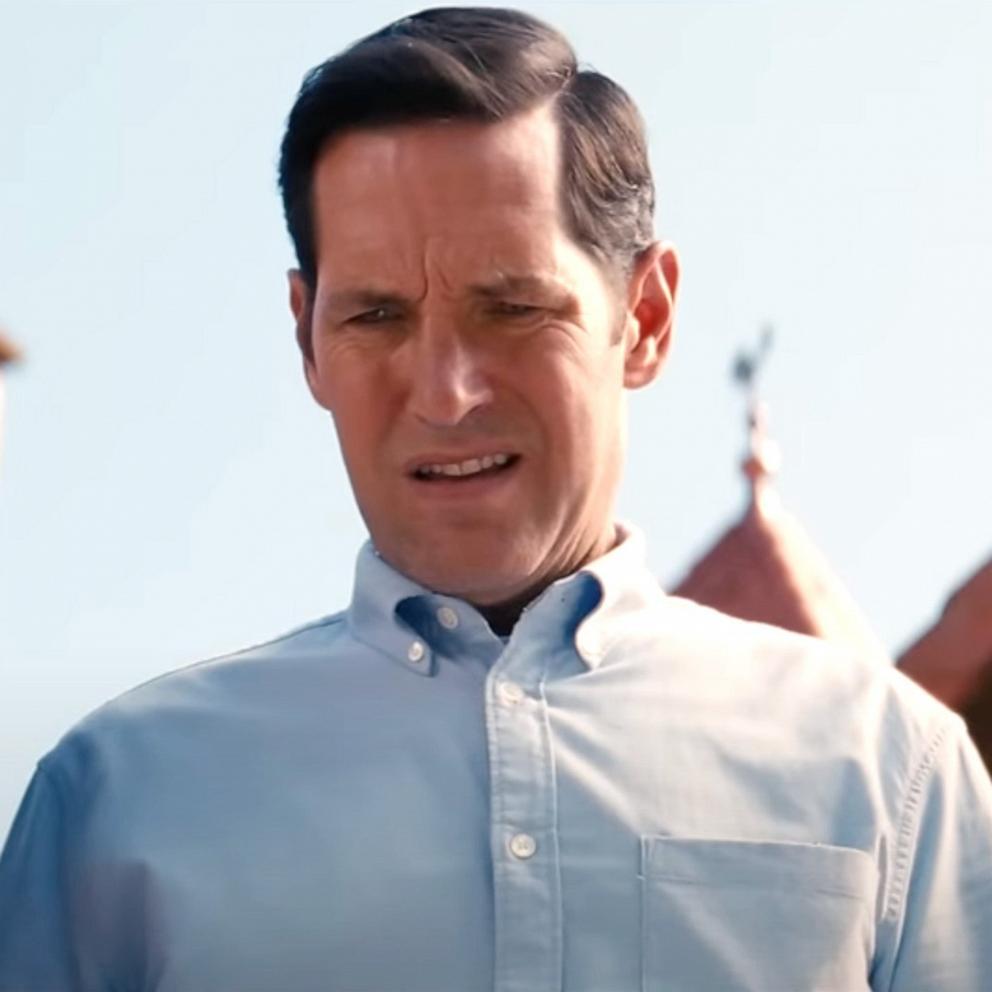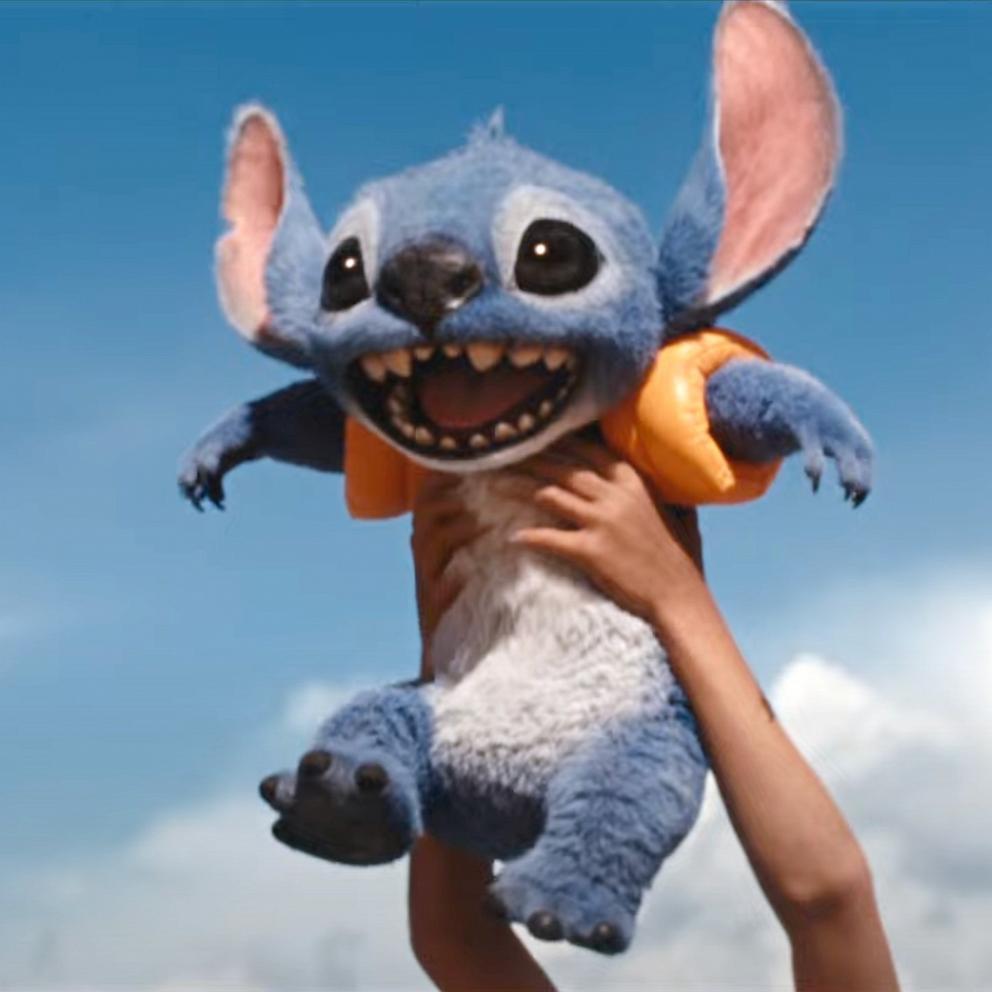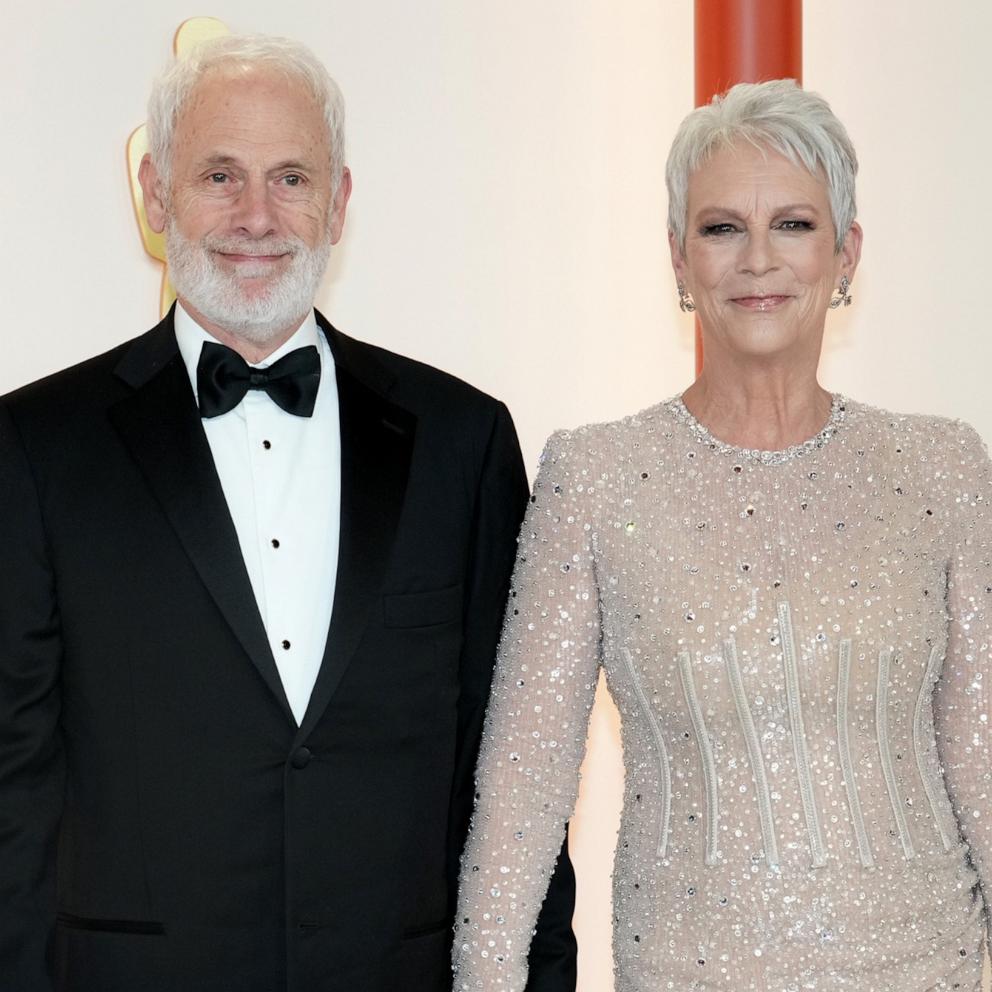LGBTQ+ athletes talk journey of coming out and the importance of inclusivity in sports industry
As of late, more LGBTQ+ athletes have embraced their identity of being out and proud, setting examples for others to follow suit.
Although the industry has become more inclusive in recent years, many are still experiencing some struggles to be their authentic selves especially in the beginning of their journeys.
While a study conducted by Outsports, the University of Winchester and the Sports Equality Foundation in 2021 showed that more than 95% of high school and college athletes said their teammates responded positively to their coming out, another study showed the opposite.
According to a Human Rights Campaign study in 2018, more than 80% of LGBTQ youth athletes are not out to their coaches, many report experiencing anti-LGBTQ attitudes from participating in youth sports.
"Good Morning America" spoke to motorsports racing athlete Zach Herrin and WNBA star Chelsea Gray about their coming out stories and the inclusivity in the sports industry.

Recognizing the issue and prioritizing mental health
For Herrin, he said his journey of finding his self-image began as a child.
"There were always struggles for me when it came to my identity and being gay," he said in an interview with "GMA."
Herrin is a motorsports racing athlete and a NASCAR driver who currently drives part-time in the ARCA Menards Series for Andy Hillenburg's Fast Track Racing team.
He has been involved in the sport since an early age, following in the footsteps of his older brother, Josh Herrin, who is an AMA Supersport champion.
For a while, Herrin said he used the sports as a distraction from dealing with his identity.
"It was easy for me at the time to put that to the side, and focus on what was important for me then, and that was racing," he recalled.
After making his professional race debut at 16, he said that "should have been one of the happiest times" for him, but that wasn't what he was feeling at the time.
"I struggled with hiding who I was and my true identity, to show up to the racetrack to be who I needed to be to do my job, then my mental health began to take the biggest toll on me that I've ever faced," he shared.
The dilemma led Herrin to take a break from racing professionally. He said that time away from the racetrack had afforded him to focus on who he was outside of the sports and "resonate with a being that's always been there."
"And through that period, I was able to come out to my family and close friends," he said, adding that the responses he received from his loved ones were mostly positive.
"I'm extremely fortunate to have such a supportive family because I've learned since I've become more immersed in our community that is not something to be taken lightly," he continued. "And I'm super thankful for that."

When it comes to acceptance of LGBTQ+ members in the racing community, Herrin said he has to give some credit to NASCAR.
He said the organization "really strives internally to ensure that their sport is a place that's welcomed for all."
Discussing what he thinks the industry should continue to work on to improve inclusivity, he explained, "I think simply [focusing on] authenticity, continuing to do the right things, and to double down on those."
He continued, "And then visibility, offering platforms to those athletes of minority backgrounds, to reach new markets to continue to grow the sport to to again to make it a sport made of people."
"And that's what's so great, honestly, about motorsports, again, we don't have any separation," Herrin added. "We've all raced together and that's what's really great about it."
As he reflected on his life journey during the interview with "GMA," Herrin also shared a message of what he would have told his younger self, quoting a famous line from drag queen star RuPaul whom he called his birthday twin.
"And if you can't love yourself, how the heck are you gonna love somebody else?"
Relearning relationships to themselves and others after coming out
Gray is a basketball star who is currently playing for the Las Vegas Aces and gearing up to represent team USA for the Olympic Games.
In an interview with "GMA," Gray shared she began coming out during her later years in college.
"I wasn't open to everyone," she said. "It took me a little while to get comfortable with saying the words and allowing people in, [and] of knowing who I truly was."
"I got tired of hiding parts of myself," she added. "When I finally told everyone, there was this relief…like, this is Chelsea, and now I'm happy."
Although Gray said the reaction from her family about her coming out was "overall positive," she shared there were definitely some ups and downs, including having to relearn who she really was.
"It took some time for me not to fall back into that place of hiding something or not being truly authentic with my conversation," she explained. "So it definitely took some time [to relearn] a relationship with my family, relearning relationship with my wife [who was] my girlfriend at the time, and just being happy in dealing with myself and being present."

Gray is now married to her wife Tipesa Moorer, and the two recently became parents to their son Lennox Ali'i Gray, who was born earlier this year.
Opening up about juggling between motherhood and her career on the court, Gray told "GMA," "It's a never ending battle of finding balance."
"And it's a learning process ... .We're learning him. And then we're learning each other individually, with our new label as moms," she said.
Why does representation matter ?
Earlier this month, the USA Basketball Women's National team announced Gray as one of the players who is selected to compete and represent the team at the 2024 Paris Olympics.
Describing herself as "a minority in every shape and form of the word," Gray discussed the importance of athletes like herself being able to participate in such events on the global scale.
"I definitely would say representation matters," she explained. "A'ja Wilson always says that, 'if you can see her, you can be her, right.' And so I've kind of created this I don't know this pocket, this lane, that is all encompassing…all while being myself. And so if a young kid sees that, and it's like, 'I want to be like that,' [that means] I've done right. And I know my face and my voice is out there for a lot of people to see. And so if they take just like one line from this or one example, then I'm doing something right."
Gray said she acknowledges that part of her journey is "to help the next generation and help people that look like me, go through those doors and not have to go through those kinds of conversations that I have had to have."
Gray also touched on the topic of inclusivity in sports and among athletes, sharing her hope for the future.
"Everybody has value. Everybody has a voice. Everyone has a journey and a story. So allow everyone to share that with the world," she said.
Despite any setbacks that got in her way throughout her journey, Gray has built a wonderful life both at home and on the court.
For this reason, if she was given a chance to tell something to her younger self, Gray shared what the message would sound like: "Keep going kid, everything is going to be alright."







